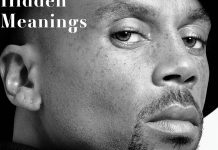
BEST NOVEL The Age of Orphans by Laleh Khadivi
The Age of Orphans by Laleh Khadivi
(Bloomsbury, $24)
Khadivi’s brutal, transcendent novel is set in her native Iran, where a Kurdish boy is conscripted into the first shah’s army after seeing his family slaughtered. He is taught to kill his own people as he grows into a broken man who doesn’t really belong anywhere. The author’s family fled Iran in 1979, and she spent her teens in Atlanta. She recently completed a two-year fellowship at Emory University.
One great line: “Each evening spreads over him like a satin blanket, immense and entire and yielding, to convince the boy that he too can belong to heaven and earth all at once.”
BEST MEMOIR Invisible Sisters by Jessica Handler
Invisible Sisters by Jessica Handler
(PublicAffairs, $24.95)
Intensely personal and universal, this is an unforgettable story of the only surviving sibling in a family defined by death and dying. One sister was diagnosed with leukemia at age six and died two years later; the youngest girl suffered from a rare bone marrow disorder and died at twenty-seven. Handler, an Art Institute of Atlanta instructor, may never have wished to bear the burden of being the family chronicler, but she does it with supernatural grace and honesty.
One great line: “I had learned to look at my family through peek-a-boo fingers, afraid of what I would see.”
BEST BIOGRAPHY OF AN ICON Flannery: A Life of Flannery O’Connor by Brad Gooch
Flannery: A Life of Flannery O’Connor by Brad Gooch
(Little, Brown, $30)
For this first major biography of O’Connor—a devoutly religious woman who wrote freaky stories about lost souls—Gooch interviewed 150 people, read everything she ever wrote, then mined a newly opened treasure trove of her personal letters. Finally, O’Connor emerges not as an eccentric recluse but as a woman of great depth, contradiction, and nuance.
One great line: “Just as her friends had to discern the contours of true suffering between the lines of her funny vignettes of invalidism, so her stories included a coded spiritual autobiography.”
BEST NEW SPIN ON AN OLD WAR The Confederate General Rides North by Amanda C. Gable
The Confederate General Rides North by Amanda C. Gable
(Scribner, $26)
In this imaginative, beautifully told story, an eleven-year-old girl struggles to keep her fragile mother from falling apart during a frantic 1960s road trip from Georgia to Maine, through the heart of the Civil War’s backdrop. Gable’s novel is steeped in history but not overpowered by it, and her young heroine is as unforgettable a character as Harper Lee’s Scout Finch.
One great line: “I am honorable and brave, and I am in retreat; the battle is over.”
BEST DEBUT NOVEL Valeria’s Last Stand by Marc Fitten
Valeria’s Last Stand by Marc Fitten
(Bloomsbury USA, $24)
In a post-Soviet Hungarian village, cranky spinster Valeria begins an unlikely romance with the village potter, who is already entangled with the local tavern’s alluring owner. Shakespeare himself would appreciate the farcical elements of this adult fable, written by the editor of the Chattahoochee Review. Beneath the comedy is a powerful, moving exploration of love, aging, and political change.
One great line: “Valeria wasn’t interested in foreign fruits and vegetables, mostly because she could not grow them, but also because of their blatant sensuality.”
BEST SIGN OF OUR TIMES Outcasts United: A Refugee Team, an American Town by Warren St. John
Outcasts United: A Refugee Team, an American Town by Warren St. John
(Spiegel & Grau, $24.95)
A New York Times writer’s profile of a Jordanian soccer coach and her ragtag team of young immigrants from war-torn countries grew organically into a much bigger story of resettlement, resentment, and full-scale culture clash. The working-class suburb of Clarkston is a fascinating microcosm of current events.
One great line: “There was a palpable sense of trust and camaraderie between the players and their coach, and an
equally powerful sense of fragility in all the tension and long silences.”
BEST DIVERSION I Drink for a Reason by David Cross
I Drink for a Reason by David Cross
(Grand Central Publishing, $23.99)
Humorist Sarah Vowell provided a brilliant blurb for this odd book of memoirs/essays/stand-up comedy/fantasy fiction by Atlanta native David Cross (of Arrested Development and Mr. Show fame): “Absurdist naysaying deepened by occasional blurts of actual emotion.” Vowell nailed it. It is, indeed, a glimpse into the manic mind of a comic genius, at its disorganized, undisciplined best.
One great line: “I’m always amazed at my own ability to get bored.”















